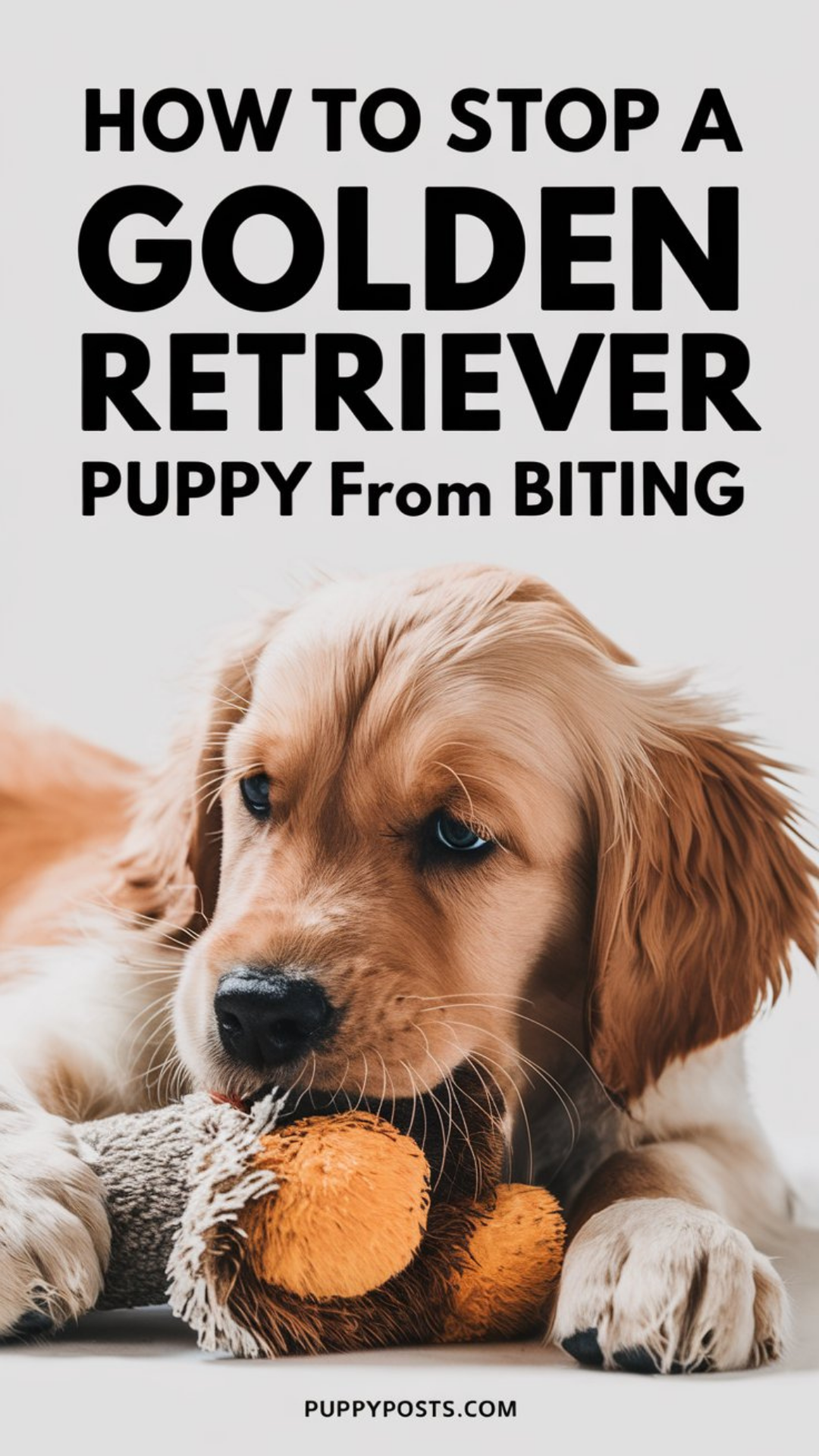How to stop a Golden Retriever puppy from biting
Listen up — Golden Retriever puppies are cute as hell, but those sharp little teeth? They can hurt. Biting is a natural part of puppy behavior, but it’s your job to stop it before it becomes a problem. If you don’t set boundaries now, you’re looking at trouble down the line. Here’s how to handle it, straight and steady.

Understand Why Puppies Bite
First, know this: puppies bite because they’re exploring the world, teething, or trying to play. They don’t mean harm, but you gotta teach them the limits — fast.
- Puppies use their mouths to learn and communicate.
- Teething makes their gums sore, so they chew and bite.
- Sometimes they bite for attention or out of excitement.
Knowing why helps you respond the right way.
Be Firm and Consistent with “No Bite” Rules
You want to make one thing crystal clear: biting is not okay.
- The moment your pup bites, say a firm “No!” or “Ouch!” to show it hurts.
- Stop playing immediately — no more fun when teeth come out.
- Ignore your puppy for a short time to show biting loses attention.
- Everyone around must follow the same rules, no exceptions.
Consistency is your secret weapon here. No mixed signals.
Redirect Biting to Appropriate Chew Toys
Don’t just say no — give your puppy something better to bite.
- Keep plenty of chew toys handy and encourage your pup to use them.
- Praise and reward your puppy when they chew toys instead of skin or clothes.
- When biting starts, gently remove your hand and offer a toy instead.
Make chew toys the go-to option for those sharp puppy teeth.
Socialize Your Puppy Early and Often
A well-socialized puppy learns bite inhibition from other dogs and people.
- Arrange playdates with vaccinated, gentle dogs who can teach boundaries.
- Introduce your puppy to different people and situations calmly.
- Supervise all interactions to stop rough play before it gets out of hand.
Social skills cut down on biting caused by fear or overstimulation.
Teach Bite Inhibition with Gentle Corrections
Puppies learn what’s acceptable by feeling consequences.
- If your puppy bites too hard, give a high-pitched yelp like another puppy would.
- Withdraw attention briefly — no play, no eye contact.
- Resume play only when your puppy calms down.
This teaches your pup to control bite pressure naturally.
Exercise Patience and Stay Calm, But Be Stern
Training takes time. You’re the leader, so act like it.
- Keep your tone firm but calm; yelling only scares or excites the pup.
- Be patient — puppies don’t learn overnight.
- Use positive reinforcement more than punishment to build trust.
Calm leadership earns respect and cooperation.
Provide Plenty of Physical and Mental Stimulation
A bored puppy bites more — it’s just facts.
- Give your pup daily walks, play sessions, and mental challenges.
- Use puzzle toys, obedience training, or fetch to tire them out.
- A tired puppy is less likely to mouth or bite.
Manage that energy and watch biting drop off.
Final Word: Set Limits Now for a Well-Behaved Dog Later
Golden Retriever puppies have a lot of love to give — but you gotta teach them where the line is. Stop biting early with clear rules, consistent training, and firm calm leadership. Do it right, and you’ll have a loyal companion for life.







